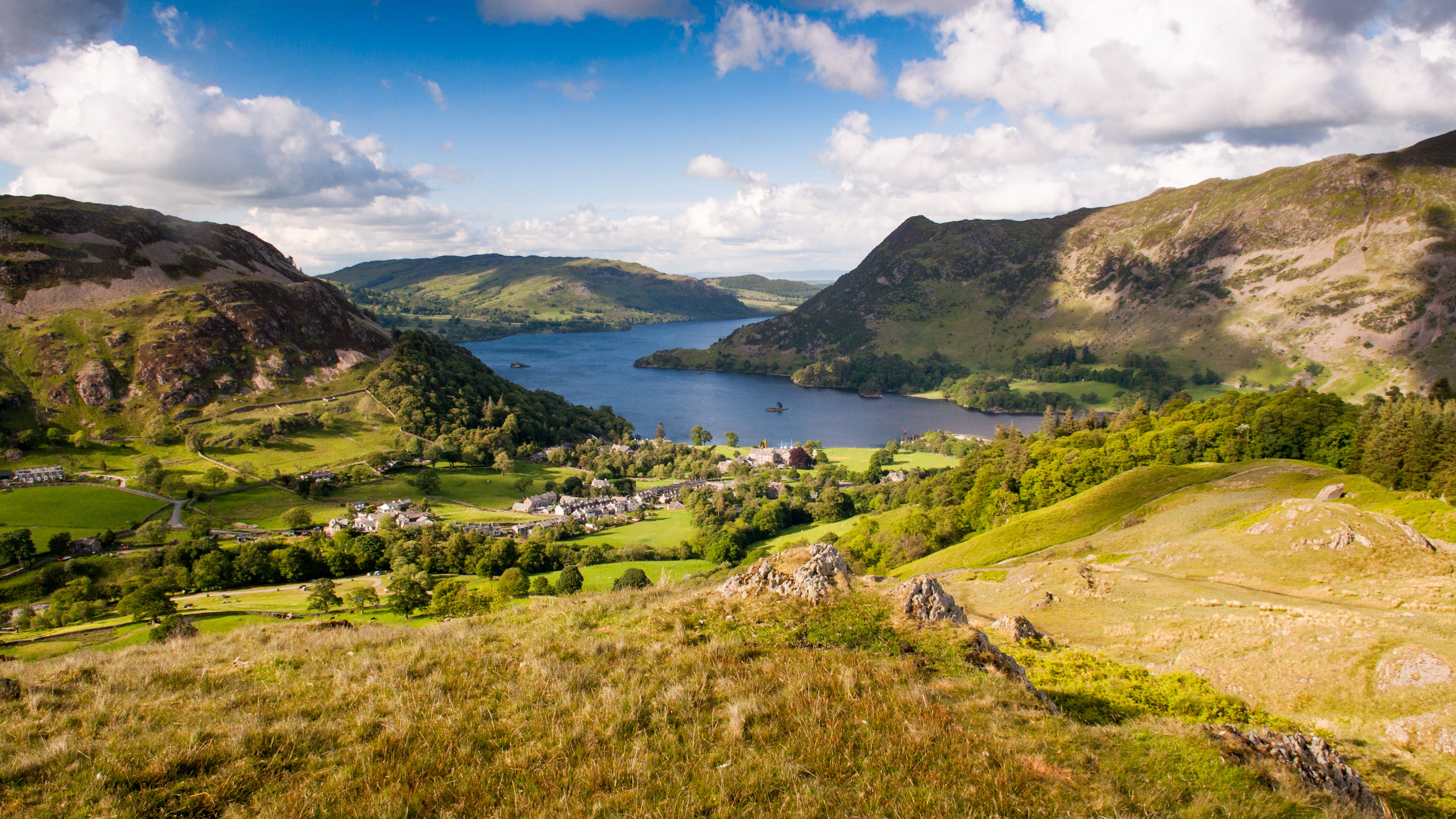On holiday, I crave seclusion – but could I make a life in isolated splendour?
Not for the first time, Will Gore finds himself considering the merits of a full-time rural retreat


We got lucky. A week in the Lake District had been booked way back in the autumn, after we decided that the risks of a foreign holiday this summer were too great. Come May and June, when everyone we knew seemed to be scrabbling around paying top dollar for Airbnb rentals in random places, we had certainty at a reasonable price.
And when the time came, Lady Luck was on our side again with the weather. During our seven days in the north, it rained only twice. For the most part, the sun shone in clear skies and sprinkled itself prettily on to mighty Ullswater.
For all that it is a heavily managed and much-visited landscape, the Lake District is a wondrous part of England and relative seclusion is just about possible, especially on Ullswater’s southern shore where traffic is limited by the absence of any through road.
At night, from our rented cottage, the only sound was the beck outside the window – its babble occasionally overlaid by the hooting of a tawny owl. In the morning, a friendly red squirrel sat patiently on an oak tree at the back of the garden, seemingly awaiting an audience. Sometimes, he was accompanied by a nuthatch; the pair competing greedily for acorns. With the nearest village 20 minutes’ drive away, peace and quiet reigned.
One morning, we walked from Howtown to Patterdale, along the path said by Alfred Wainwright to be “the most beautiful and rewarding” in the Lake District, and were then buzzed by RAF Typhoons at Glenridding: not nature, not peaceful but as much a part of the area’s furniture these days as Wainwright himself.
On another day, I dragged my children up Hallin Fell, where we marvelled at the view and were assaulted by flying ants. Later in the week, they tackled an ascent of Place Fell – nearly 1,000ft higher – with gusto, suddenly understanding the joy of a summit achieved. We ate hard-boiled eggs and apples and listened to the mewing of buzzards and the belch-cum-croak of dastardly ravens.
“I wish we lived here,” said my son, voicing my thoughts – and the thoughts I’ve had during every rural British holiday for the past decade or so. And in these days of remote working, why not?
On holiday, it is all too easy to imagine yourself staying put in an idyllic place – and to forget that real life has none of the trappings of a vacation
Yet even as I think it, I doubt it. For one thing, there are the logistics of it all: new schools, new work routines, new people; shops and other facilities a matter of miles in the car, not minutes on foot. Would I really want to be a Zoom-only colleague forever, if I even could be? And what about my residual fear of the dark (or at least, my fear of things that go bump in the night)?
Practicalities aside, I worry that a move to splendid isolation is as much – if not more – a retreat from the world than an embrace. When pandemics and politics and conflicts rage, it may be appealing to be cut adrift: but none of us is an island.
Still, the temptation remains, which is why I am watching my brother with particular interest just now. As our Lakeland holiday was coming to an end, my brother and his wife were making their long-planned move from a semi-detached home in a well-served Cambridgeshire town to a remote Welsh small holding. Forty-odd acres of mostly wooded land, with potential for a little agriculture, maybe some tourism, and certainly a different way of life. He has taken the kind of plunge that makes my risk-averse blood pressure rise like steam from a boiling kettle.
On holiday, it is all too easy to imagine yourself staying put in an idyllic place – and to forget that real life has none of the trappings of a vacation. When we visit my brother later this year and see his remote reality up close and personal, I wonder whether we will still find ourselves thinking “we wished we lived here”.



Join our commenting forum
Join thought-provoking conversations, follow other Independent readers and see their replies
Comments